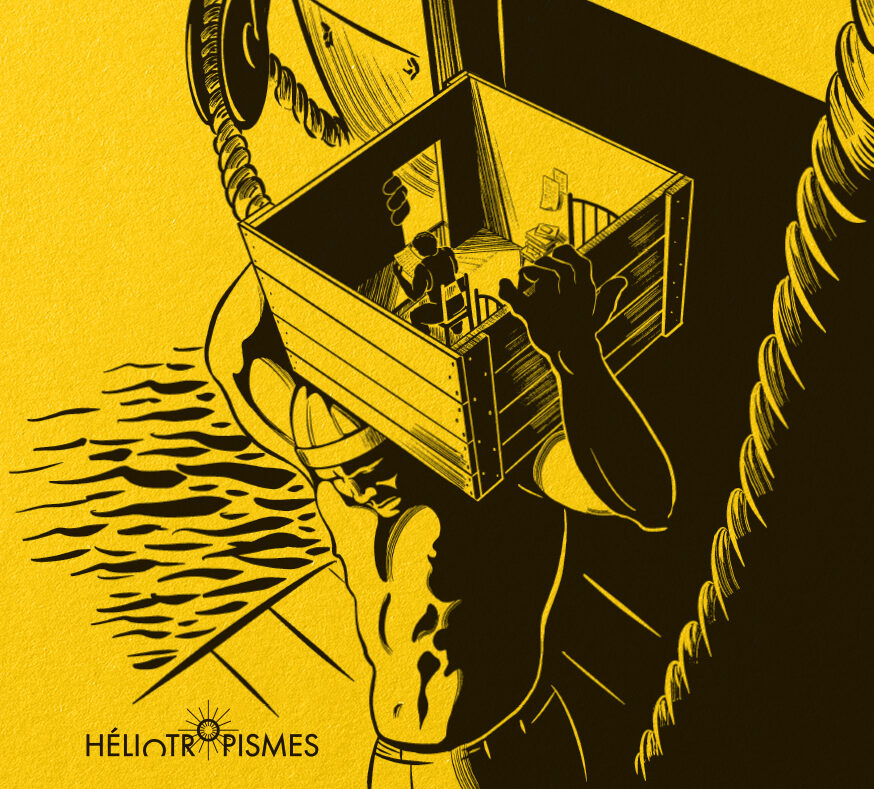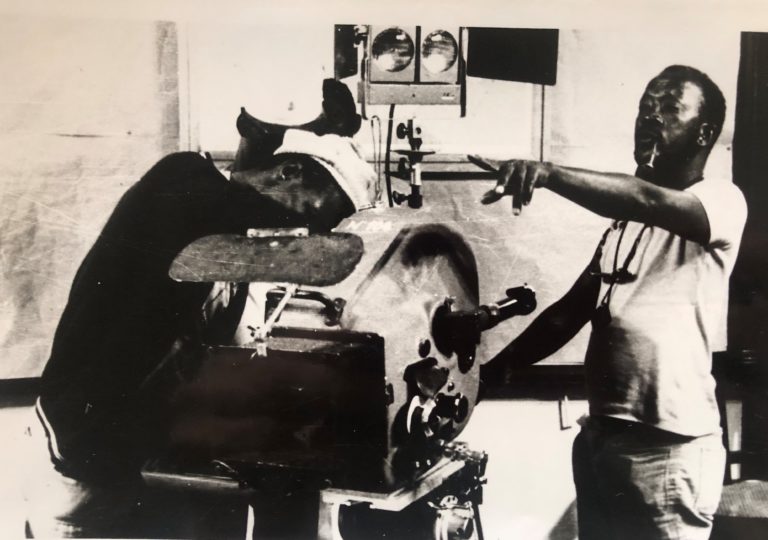New Perspectives on Sembène’s Novels: A Roundtable
Talk

@ Héliotropismes

@ Héliotropismes
Indiana University
107 S. Indiana Avenue
GA 3134
Bloomington, IN, United States 47405-7000
January 12, 2024 (4-5 pm)
The Center of Excellence of the French Embassy at IU invites attendees to the roundtable: New Perspectives on Sembène’s Novels: “Le Docker noir” and “Les Bouts de bois de Dieux“. This multi-faceted discussion will touch on topics such as archival research, political praxis, and literary analysis and provide a unique opportunity to learn more about a Francophone African author and filmmaker whose archives are held at the Lilly Library of Rare Books and Manuscripts at Indiana University – Bloomington.
Invited speakers Dr. Valérie Berty (NYU Paris) and publisher Dr. Renaud Boukh recently collaborated on a new critical edition of Le Docker noir and will address Sembène’s work from both an archival and a literary perspective. While Boukh’s intervention will treat the significance of document-based research to grasping the radicalism and militant training of the author, Berty’s research delves into Sembène’s use of narrative strategies, thematic choices, formal elements, and characters to go beyond the realities of the contemporary period. Dr. Eileen Julien, Professor Emerita of Comparative Literature, French and Italian, and African Studies at Indiana University – Bloomington, will join the roundtable discussion as a respondent.
Follow this discussion live at Indiana University – Bloomington or on Zoom ! (password : hoosiers)
About Sembène Ousmane
Senegalese author and filmaker Sembène Ousmane‘s literary work is voluminous, complex, and visionary, comprising eight novels and sixteen short stories written between 1956 and 1996. Two of his most brilliant and political novels, Le Docker noir and Les Bouts de bois de Dieu, were written while he worked in the port of Marseille in the 1950s. His pan-African political convictions were driven by a desire to improve working-class conditions, both in mainland France and in French West Africa. He was born in Casamance in 1923. After working as a mechanic, mason and rifleman in the colonial army, he landed illegally in Marseille, where he became a dockworker. His stay in the city (1946-1960) was a decisive period of intense militant and intellectual activity. He wrote his first three novels and played an active role in the CGT (General Confederation of Labour), the Communist Party, the FEANF (Black African Students Federation in France) and the MRAP (Movement against Racism and for Friendship between People). His return to Africa marked the start of a rich film and literary career. Sembène Ousmane died in 2007, leaving behind him an unsparing body of work in the service of a free Africa.
About the speakers
Valérie Berty holds a Ph.D in the Sociology of Literature from the Ecole de Hautes Etudes en Sciences Sociales (School of Advanced Studies in Social Sciences) in Paris. She teaches literature and cinema at New York University Paris as well as French language courses. Dr. Berty has long specialized in African literature and cinema, having published a collective volume on writers-filmmakers and, in 2019, the book Sembène Ousmane (1923-2007): un homme debout: écrivain, cinéaste et humaniste.
Renaud Boukh is a publisher and translator. A specialist of Latin-American literatures, he translated the work of Joaquin Pasos, Ariana Daniele, Ronaldo Menéndez, and Enrique Vila-Matas. In 2017, he co-founded Héliotropismes, a Marseille-based publishing company with a mission to promote minority themes, including the French versions of Princesa by Fernanda Farias de Albuquerque & Maurizio Iannelli and Romance in Marseille by Claude McKay. He is also a publisher at Héliotropismes, where he recently released a new critical edition of Ousmane Sembène’s first novel, Le Docker Noir.
Eileen Julien is Professor Emerita of Comparative Literature, French and Italian, and African Studies at Indiana University – Bloomington. Among her publications are essays on Josephine Baker’s French films of the 1930s, the 1956 Présence Africaine “Black Men of Culture” conference in Paris, the “extroverted” African novel, the poetics of Frantz Fanon’s writing, a 1992 monograph, African Novels and the Question of Orality and a memoir, Travels with Mae: Scenes from a New Orleans Girlhood (2009). She was Founding Director of the West African Research Center, Dakar and recently curated an exhibit in Dakar of works by Kalidou Sy, former director of Senegal’s Ecole Nationale des Beaux Arts (2022). She is the Africa regional editor for the four volume Literature, A World History (Wiley-Blackwell, 2022).
This discussion is sponsored by the Center of Excellence of the French Embassy at Indiana University and the Mary-Margaret Barr Koon Fund of the Department of French and Italian.
In partnership with

Department of French and Italian and the Center of Excellence of the French Embassy at Indiana University Bloomington
Learning French or Italian can open doors to the global community. Our internationally recognized department offers all levels of language instruction, courses that inspire curiosity, exciting research opportunities, and study abroad experiences to broaden your horizons.
